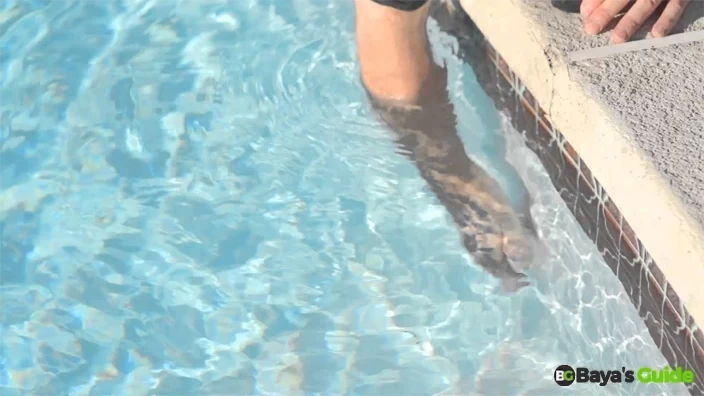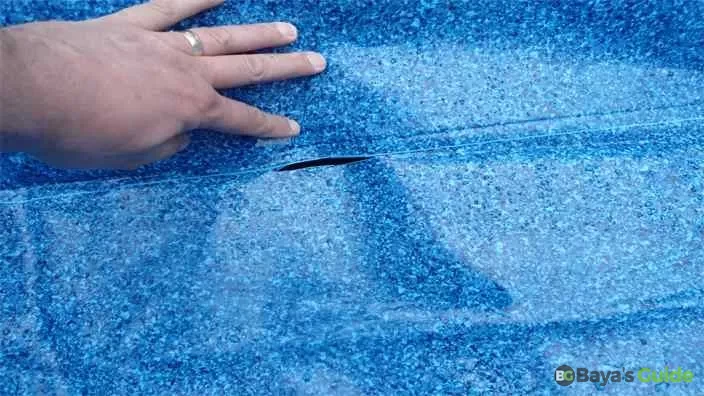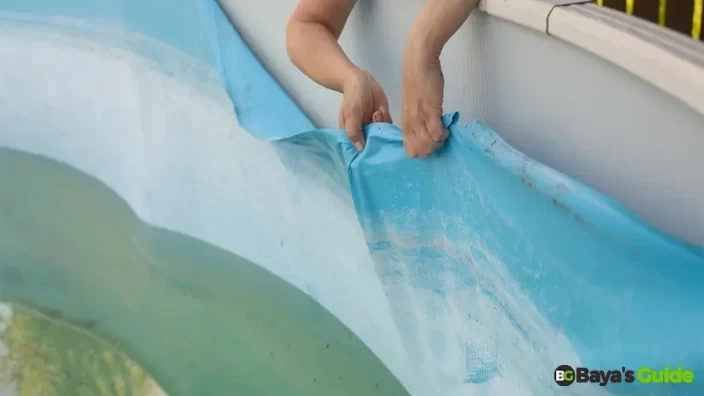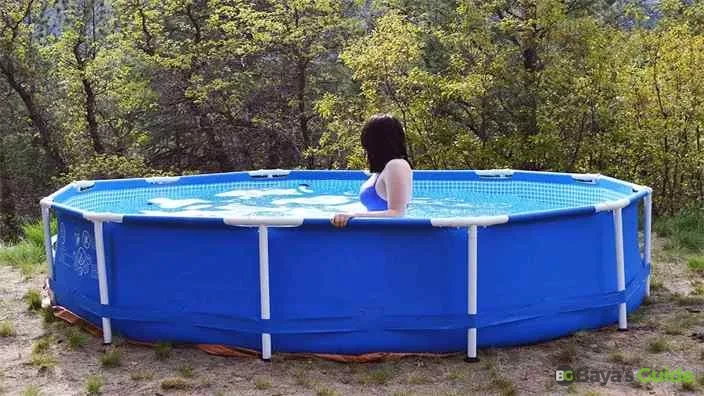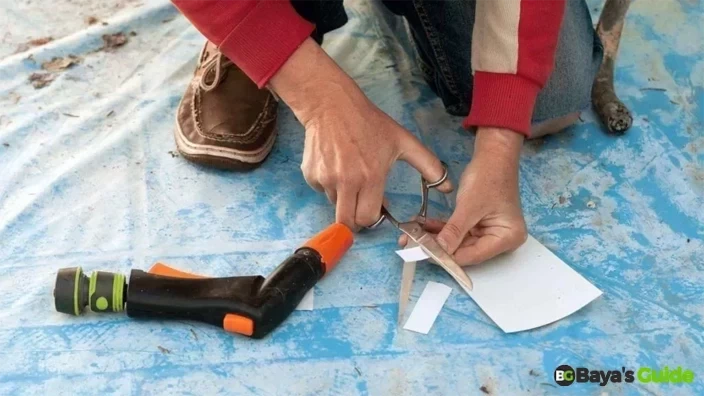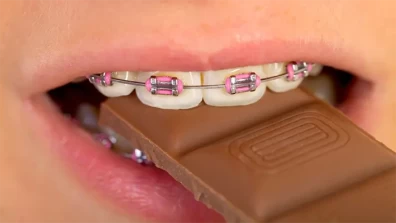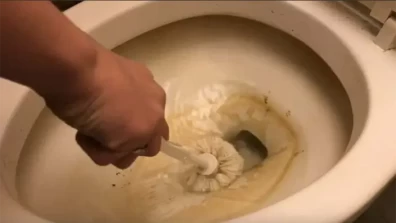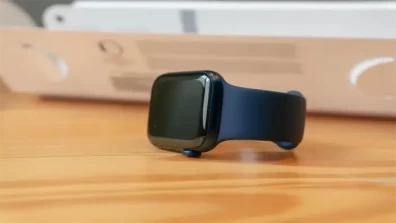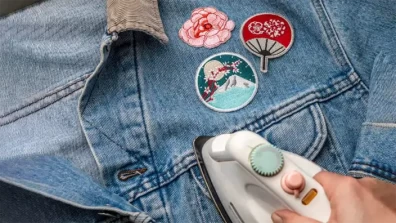Diving into your above-ground pool to relax and rejuvenate should be a moment of enjoyment, but an invisible leak will be the last thing that you need. Water leakage that you might not be aware of, even the smallest leak, can cause great water loss, structural damage, and an increase in your water bill. The vital part that will keep your pool heaven-like is to become a pool detective with all the necessary information and skills to trace and battle the leaks.
A survey suggested that about 20% of people choose above-ground pools, unlike a gunite pool, compared to the rest of the population. This resonates with market research, stating the estimated CAGR market size of 4% for the above-ground pool industry. Among 130 million households, 41% of them have installed an above-ground pool. They like to know how to find a leak in an above-ground pool. Begin a journey that will guide you through practical and doable techniques on how to locate and repair difficult leaks.
Table of Contents
Reasons For Leaks In Above Ground Pools
With life becoming more progressive and busy, physical activity has greatly reduced. As a result, taking time out for yourself regularly for entertainment is crucial for mental sanity. Above-ground pools are an excellent option not only for fun but also for their tremendous effects on your health. While an above-ground pool has a ton to offer, problems associated with it are inevitable, which is definitely quite normal. One of the most frequent ones is leaks. Fortunately, you can ensure swimming pool leak repair effectively with kits in case of small leaks and professional help when it comes to major ones.
Consequently, before I discuss the ways to find leaks and methods to fix them, let’s shed light on the potential reasons so you can effectively fix them. For instance, the reason behind a leak can be as small as a tear in the liner, and at times, there can be problems on a large scale, like installation, equipment breakage, and corrosion. To comprehend this better, let’s dive deep into all the reasons individually to understand them better.
1- Skimmer
One of the most frequent and common leaks involves the skimmer. If you are wondering what a skimmer actually is? Well, it's an opening through which water goes into the pump. At certain times, the edges of the skimmer tend to loosen up. This results in water being pulled through the sides, even when pumped through the skimmer's mouth. In such a case, it may give signs of an above-ground leak since the pool water level in the pool has reduced significantly.
2- Pool Light
The next reason you might face a brand new above-ground pool leaking is your pool lighting. Occasionally, after a passage of time, the pool lighting screws might get rusty and lose their tight grip. Consequently, the water might pass through these loosened screws, which forms a leak. Moreover, the cap of the lighting bulb might either get lost or break, resulting in further water leaking.
3- Liner Tears
Apart from the skimmer and pool lighting, the tears and holes in the vinyl liners of the above-ground pool may cause a leak if it is not found in the filtration system or electrical conduits. Vinyl liners usually last for almost 6 to 12 years. They might even stay intact for longer periods with quality care. But tears are quite common and can occur from sharp objects, debris, and even tree branches. Therefore, keeping these sharp objects away from the pool is advised.
4- Installation
Another possible yet uncommon cause of above-ground pool leaks can be improper installation. If the equipment isn't installed appropriately, it might result in a leak. Since installation involves precision and intricate details, professional help is the way to go.
5- Chemical Harm
One underestimated, yet the potential cause of the leak in your above-ground pool is the damage caused by Chlorine and other chemicals. Over time, the condition of vinyl liners tends to get affected due to substantially low pH and strong chemicals.
6- Corrosion
Corrosion is another possible reason behind a leak. With time, metal components of the pool might corrode, due to which these parts may lose their true grip and create a leak in the pool.
Methods Of Finding Leaks In Above Ground Pool
Now that we have discussed the common causes and reasons for leaks in an above-ground pool, it is time to unveil quick yet effective methods to identify them. The first evident sign of a water leak is the level of water dropping in your pool. A leak can result in water loss, and not only that, but it can also affect the overall efficiency of an above-ground pool. Apart from visual changes in the water level, cracks might also appear in the pool.
The color of the above-ground pool can also look muddy or dirty if there is a leak in the pool caused by chemical damage. All of these visual changes in the water of the above-ground pool can serve as a good indicator of a leak. Considering these factors, I've listed down all the methods (scenario-based) through which you can find leaks in the above-ground pool, keeping in mind the possibilities and limitations.
You Might Also Like:How To Break Up Scar Tissue
How To Find A Leak In An Above-Ground Pool Without Draining It?
If you want to find leaks in an above-ground pool without draining it, you need to have a solid command of visual inspection. Along with it, some tests will also help you identify leaks successfully. Follow the steps given below to aid you in finding the leak without losing water present in your pool.
- The first step is to inspect the entire pool visually. While doing so, ensure you look for areas around skimmers, returns, and lighting.
- Pay a close look at the liner to make sure it's intact or not. If you find any extra muddy or green patches, it might be a positive sign of a water leak.
- If you find any signs of a leak, go for a bucket test for further confirmation. You only need a bucket and some water to proceed with a bucket test. Start by filling your bucket with water and put it on your pool's step.
- Mark the water level of your pool from the outside and inside of the bucket. Check both levels after 24 hours. If you observe more loss of the pool's water level than the bucket's, then there is definitely a leak.
- For vinyl-lined pools, you can try the paper towel test. In this test, all you have to do is press a paper towel on the suspected spot of the pool. If the paper towel absorbs water, you will be able to locate the exact leak spot.
- Sometimes, the leak's culprit isn't the skimmer, return, or pool liner but the equipment. Therefore, observe all the equipment closely to determine if there is a leak in the equipment.
Ways To Find A Leak In An Above-Ground Pool Without Draining It
Ways | Processes To Follow |
| Visual Inspection | Perform a visual inspection of the entire pool by focusing on the area around skimmers, returns, and lighting to find any indication of water leakage. |
| Bucket Test For Leak Confirmation | Do a bucket test by putting water into a bucket and checking the water level inside the pool and outside the pool after 24 hours to verify a leak. |
| Paper Towel Test For Vinyl-Lined Pools | Put a paper towel on the suspected areas of the pool vinyl-lined; if it absorbs water, locate the exact leak spot. |
| Equipment Inspection | Look carefully at the equipment since leaks may arise from the equipment and not from skimmers, returns, or the pool liner. |
How To Find Leak In Above Ground Pool With Dye?
Now, if you have tried the above methods of finding the leak in the above-ground pool and you want to identify the exact spot of the leak, then going for the dye test is the recommended approach.
- Switch off the pool pump to make the water reach a steady level. Then take some dye. A dark-colored one is a better choice. Put it near the suspected leak area and observe if it is moving towards it.
- If the dye seems drawn closer to the spot, you can easily locate it. It is the right method to monitor leaks around returns, skimmers, liners, etc.
Techniques To Find Leak In Above Ground Pool With Dye
Techniques | Procedures To Follow |
| Pool Pump Shutdown | Turn the pool pump off to stabilize the water level and allow for an accurate reading. |
| Dye Test | Apply dark-colored dye to the suspected leak area and observe its movement; if the dye moves towards the area of the leak, it will be easier to locate it. |
Easy Fixes For Leaks In Above Ground Pool
Now that we have discussed the potential reasons behind a leak in the above-ground pool and shared the methods to identify one, let's go through some easy yet quick fixes to get rid of a leak. The effectiveness of these fixes depends on the size of your leak and the condition of your above-pool ground. If it is a relatively new one, then there are higher chances of these tips turning out to be beneficial for getting rid of the leak in your pool.
1- Waterproof Tape
When it comes to small leaks, waterproof tapes are an absolute savior. These tapes are affordable and pretty easy to use. One downside of using these for fixing leaks is the constant requirement to replace them. But on the bright side, it is a cheaper and reliable fix for small leaks.
2- Vinyl Patches
The next option for managing small leaks is the famous vinyl patches. Just like waterproof tapes, these are easy to use and can fix leaks in above-ground pools. All you need to do is remove its back part and press it on the leak spot. One benefit of using these is their longevity and staying power.
3- Patch Kits
You can count on a vinyl patch kit for larger leaks. These fix the tears, which are not fixed with waterproof tape, vinyl patches, or other fixes. These kits usually come with a vinyl adhesive and are a little complex to use, but the results are worth it.
4- Skimmer Leaks
If the reason behind the leak in your above-ground pool is the skimmer. Then, consider getting it fixed in the first place. Evaluate the leak after using the repaired skimmer in the pool. If the leak persists, go for a new one.
Note: If you have tried the above fixes yet are unable to get rid of leaks in your above-ground pool completely, get in touch with a professional. They are trained and can successfully help you in solving this issue.
Frequently Asked Questions
How Do You Find A Leak In A Pool Without Draining It?
To find a leak in a pool without draining it, you need to try out a few tests. The most common one is the bucket test. In this method, you put a bucket on the step of your pool. Then, you need to make water levels inside the bucket and the pool's water level on the outside of the bucket. Evaluate the level of both followed by a waiting period of 24-48 hours. If there's more water loss in the pool, it is a sign indicating a leak.
How Much Water Loss In A Pool Is Normal?
The amount of water loss in a pool depends on a few factors. These include sun exposure, the location of the pool, wind intensity, and weather. So, in light of all these factors, your pool might lose half a centimeter of water daily, which is usually considered normal. The amount of water loss might also increase depending on these factors.
How To Find A Leak In The Bottom Of An Above-Ground Pool Liner?
To navigate the reason behind the above-ground pool leaking from the bottom, you need to ensure the pool is full. And then get in the pool to feel the floor yourself to find a leak in the bottom of an above-ground pool liner. If it gives off a softer feeling beneath the ground, chances are there is a leak in the ground pool liner. To confirm it, do a floor color testing. Place some drops of a food color into the suspected leak area. If the color is drawn towards it, there is definitely a leak in the pool liner.
How Much Water Does A Pool Lose Per Week?
A pool usually loses more than half a centimeter of water each day. Therefore, this makes around five centimeters of water lost per week. This amount of water loss is considered normal and depends on factors that include sun exposure, wind intensity, weather, etc.
Why Does My Pool Lose Water Overnight?
Your pool can lose water overnight, which can either be totally normal or caused by a leak. If your pool isn't losing more than 1/4 of water overnight, then it is a normal water loss. And you should not worry about it. But if the water loss is more than this fraction, then you need to identify the root cause and fix it accordingly.
What Is The Most Common Above Ground Pool Leak?
The most common above-ground pool leak is usually around the skimmer. It is an opening from where the water goes into the pump and is one of the two openings in the vinyl liner of your above-ground pool.
Conclusion
Concluding our guide on detecting leaks in above-ground pools, I trust you can now easily pinpoint potential issues, employ swift methods for identification, and attempt straightforward fixes. Moreover, you have to make your water line and pool clean. If you have any questions or wish to share your experiences, please leave them in the comments below, and I'll respond promptly. Until next time, ciao!

